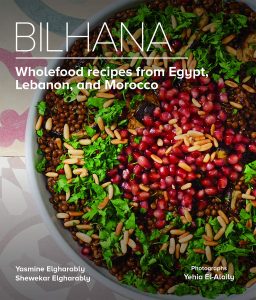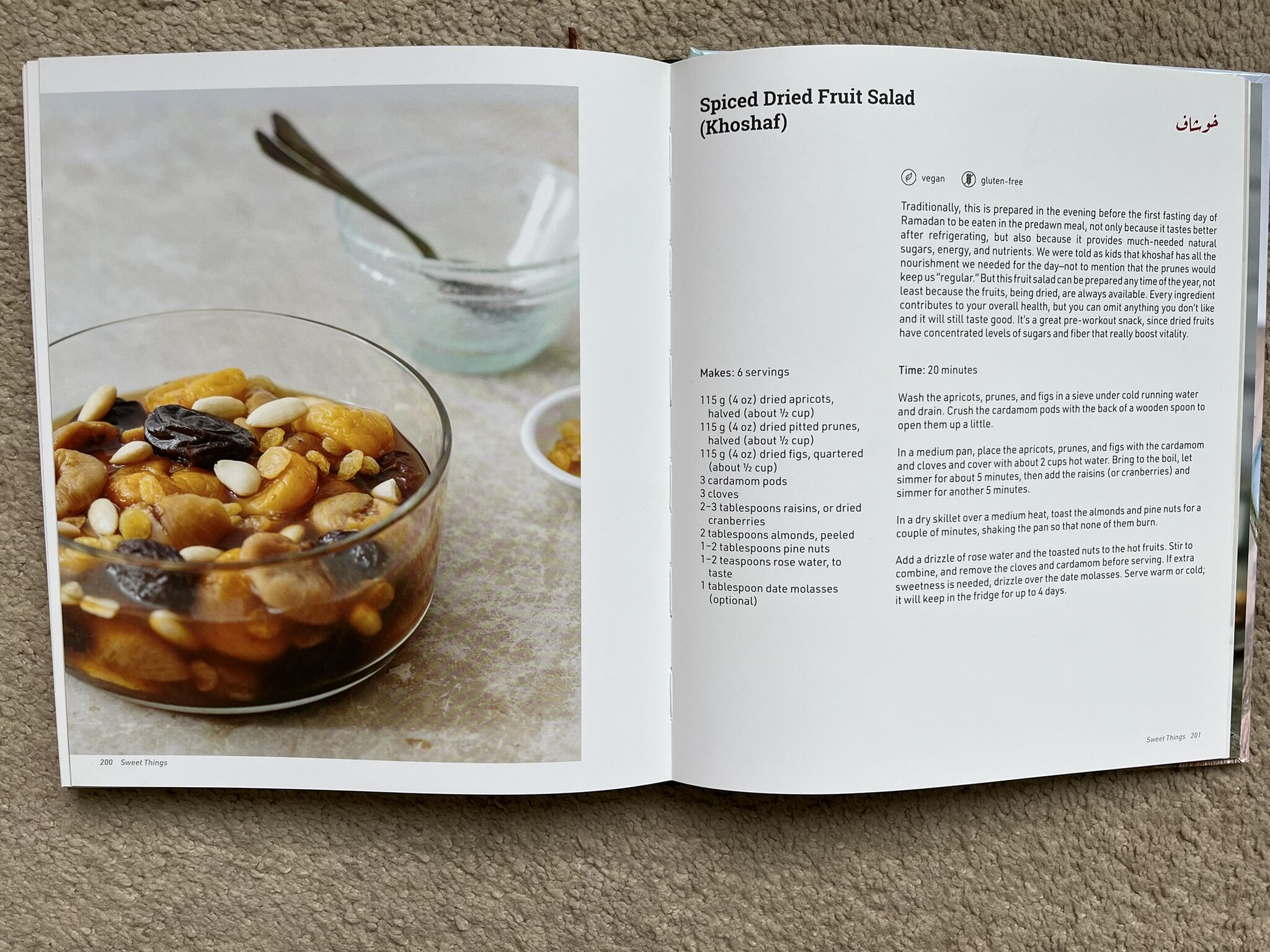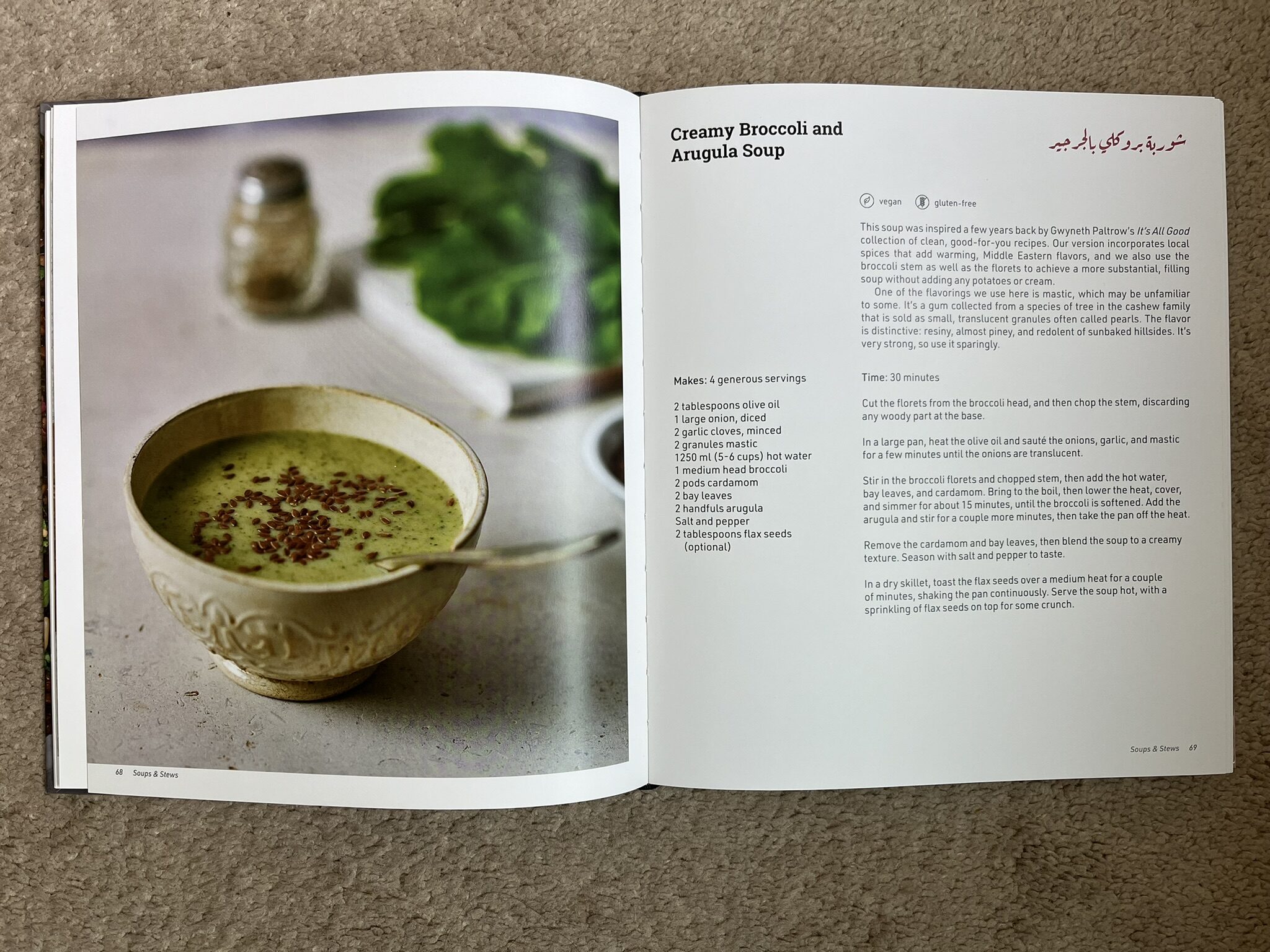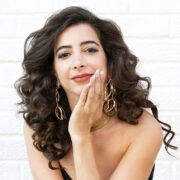Ramadan Special
About our guests:
Yasmine Elgharably is a self-taught home cook with a business background and a passion for Middle Eastern cuisine. She is the co-founder of CairoCooking.com, a recipe-sharing platform for Middle Eastern food.
Shewekar Elgharably is an interior decorator. In 2016 she became a certified health coach and recipe developer for healing and nutritious dish combinations.
Yehia El-Alaily is a Cairo-based food and travel photographer with over fifteen years’ experience.
Bilhana: Wholefood reciepes from Egypt, Lebanon and Morocco |
 |
About the book:
A modern twist on traditional Middle Eastern cuisine
Middle Eastern cuisine is famous for its variety, sophistication , and flavor. Bilhana (Egyptian for ‘bon appétit’) brings a contemporary twist to traditional Middle Eastern dishes with the use of healthy cooking methods. You will find the freshest ingredients the region has to offer.
Spanning the vast area south of the Mediterranean from the East (Lebanon and Egypt) to the West (Morocco), from simple mezze or breakfast dishes to elaborate stews and roasts, the recipes in this book showcase the vibrant colors and immense variety of Middle Eastern cooking.
Included are recipes for Roasted Eggplant with Tahini, Alexandrian Grilled Shrimp, Shakshuka, Moroccan Lamb Stew, Vegan Moussaka, Green Beans in Garlic and Caramelized Onions, Pomegranate and Guava Salad, and much more. Exquisitely illustrated with more than 130 full-color photographs.
Transcript of selected parts
The draft below is edited for online reading.
Yasmine, it is Ramadan. I come to your house for Iftar. What do you give me to eat?
 We would start with Khoshaf, or spiced dried fruit salad which is made of dried prunes, figs, and apricots with dates and nuts. It’s slow cooked until they’re all tender, then we add honey, a naturally sweetened ingredient.
We would start with Khoshaf, or spiced dried fruit salad which is made of dried prunes, figs, and apricots with dates and nuts. It’s slow cooked until they’re all tender, then we add honey, a naturally sweetened ingredient.
I start with the salad to give you that extra energy boost at the beginning. Then, I follow [the salad] with a soup to make it nutritious, healthy and wholesome (page 201).
What soup?
 First we have the bone broth, which is either knuckles or bone marrow that is slow cooked with vegetables and spices. And then we use the broth as a base to make the soup. We can use the broth for more soups though.
First we have the bone broth, which is either knuckles or bone marrow that is slow cooked with vegetables and spices. And then we use the broth as a base to make the soup. We can use the broth for more soups though.
And the soup that we choose for you, after your fruit salad today, is Creamy Broccoli and Arugula Soup.
We’re very big on arugula here in the region. So I think if you’re with a good nutritious base of the bone broth and the creaminess of the broccoli when it’s whisked after it’s cooked and the freshness of the arugula, it would be optimal (page 69).
Shwekar, what else can I have as a nutrition based food?
Since you had the greens already with the broccoli and the arugula, I would go for Maqluba Freekeh. We have it in the book as well. It’s done in a big pot and then flipped upside down. It looks gorgeous after it’s flipped. We have the layers of Freekeh, layers of meat, and layers of eggplants and chickpeas.
Yasmine What is freekeh?
Freekeh is a baby wheat. So it’s still green, it has a lot of fibers in it. And it is very delicious and high in protein.
Yehia, the pictures are beautiful. I wonder, did the sisters let you to eat the foods?
We ate everything, don’t worry about that. Everything was consumed. And actually one of the main things that we want to do has been zero waste. So we almost didn’t waste anything
Every dish we made, we consumed them, either on the day or later. Everything was consumed. Nothing was thrown away.
Shewekar: Also in the shoot itself, we did not use anything processed or any chemical to make the picture look nicer. So everything was edible and natural. Any chemical colors or no sprays, nothing.
Yasmine, please tell me about Cairo cooking?
Me and my friend, Shahdein, we started Cairo Cooking five years ago as a collaborative platform where people can share recipes. It started off when we got married and had kids and we started asking each other’s for recipes to do for the kids. We also wanted to learn about the foods to make at home in general or in the big gatherings and family gatherings. We realized how much need there is for that. So we created Cairo Cooking with our own recipes and asked people to join us and add their recipes. We wanted to promote Middle Eastern recipes that were done easier, with a modern twist.
We wanted to take away the stigma from the big recipes that scare you, the grandmother’s recipes that are scary sometimes. You want to try to make the recipes up-do-date and modern.
Shewekar, what are the major differences between Moroccan, Lebanese and Egyptian cooking?
Well, you know, Egypt is a melting pot for all these cultures. Egyptian, Lebanese, Persian, Turkish, Moroccan. It’s been always the place to connect all the cultures and people from around in the area.
To answer your question, the Egyptian foods usually, if not always, contains garlic, onion and tomatoes with some dried coriander. And this is a sauce for any stew or Egyptian food.
For Lebanese, they cook more with olive oil and more of mint leaves and sumac and pomegranate molasses. With Moroccan, they use more of turmeric, ginger, saffron, cayenne peppers. So these are the different spices used in different countries.
Yehia, how did Elgharably sisters found you?
We’re friends.
Tell me, in what way? How are your friends?
Shewekar: His wife actually used to go to the same high school like we did.
I work in interior design industry as well. So he got to photo shoot some of my interiors projects. My husband sees Yahya at our sport club almost every day in the morning.
What differentiates your cookbook from any other Egyptian cookbook?
The recipes in this book, it’s all gluten free, sugar free, dairy free, and only using wholesome ingredients. There is no processed foods at all.
Raw footage of our interview with the creators
Please Pledge to Our Peace Journalism.
Goltune is editorially independent. We set our agenda. No one edits our editors. No one steers our opinion. This is important as it enables us to stay true to our values.
Every contribution we receive from readers like you, big or small, goes directly into funding our journalism. Please support Goltune, large or small.
Send your contributions to our PayPal account: [email protected]
Or, Click the link to pledge your support.
Thank you,
Goltune Editorial Team






